FOR ALL AGES
First things first, it's critical to say that any parenting guide out there is very likely to contradict a variety of other parenting books for babies.
There are so many books on child development available that the best book for one set of parents is not necessarily going to be another couple's cup of tea. It's therefore okay - and perhaps inevitable - that there may be some parenting baby books that you find unhelpful, so we've tried to include the broadest range of developmental books for babies and toddlers as we can, in order to help you invest your time, money, and energy into a parenting book that is right for you.
You want a first time parenting book that holds your hand and treats you with empathy and understanding, and that acknowledges there will be tough times alongside easier moments. Lists of endless 'to dos' can leave you feeling more stressed and anxious than informed and educated, so we've tried to stick to parenting books that guide you through the challenges whilst reminding you that, at the end of the day, both you and your child are human, and that the best approach is one in which you are fully present and able to approach both yourself and your little one with kindness and a willingness to learn throughout the process of parenting.
Once your child is a bit more grown-up and you're no longer on the lookout for books for newborns, you may want a way of tracking their growth and development, in which case we've listed the top baby growth charts for you to take a peep at. We've also picked the best pregnancy books for expecting parents too.
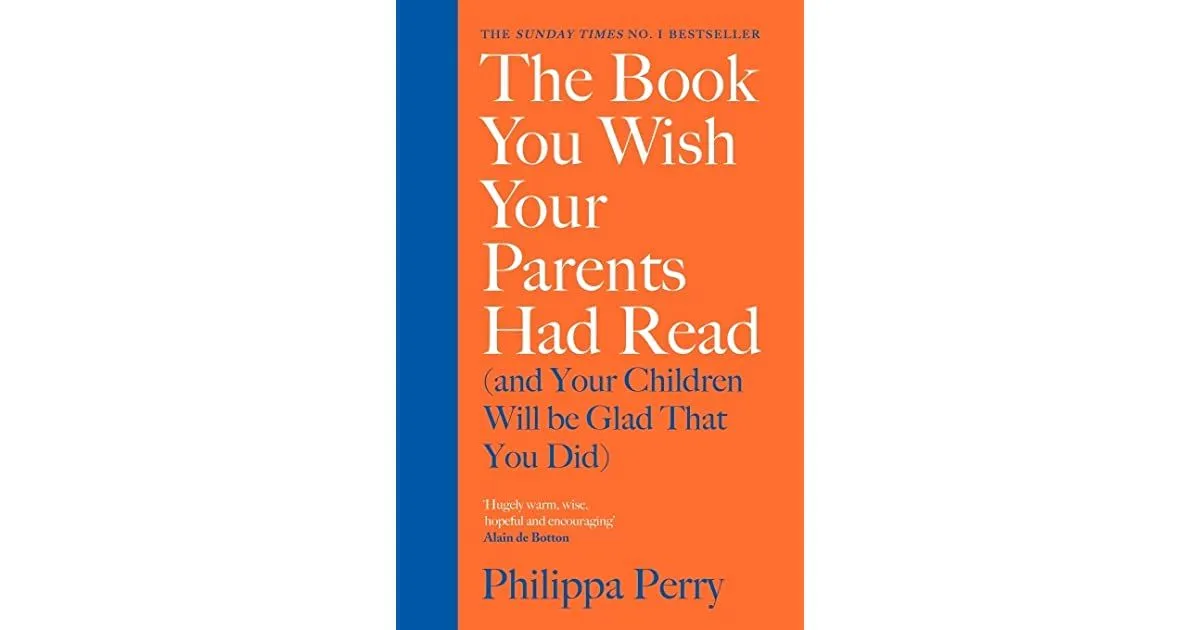
In need of a parenting book full of sage, sanguine advice that encourages you to approach your child holistically? This book is for you. Perry avoids mapping out a perfect plan, advising instead to take a bigger-picture approach as to what really matters, and the critical dos and don'ts of parenting. Clever but never overwhelming, informed without being alienating, this judgement-free guide offers a more realistic, empathetic approach to raising a child. Learn how to handle both your own and your child's feelings, accept you'll make mistakes, and follow Perry's other fruitful recommendations in order to nurture your child and yourself along the path to greater connection for both parties.
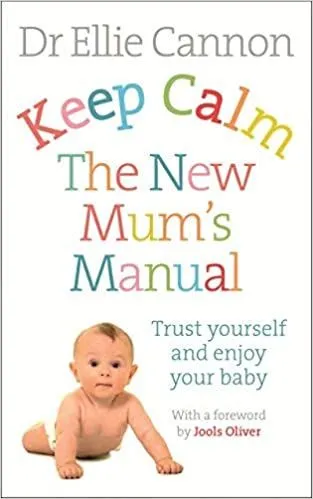
Dr Cannon is a breath of fresh air in the overcrowded realm of books on child psychology and development. You come away from the reading experience feeling less anxious and more content thanks to her practical advice. Cannon denounces the idea that all babies are uniform, and that parents, therefore, should follow a rigidly inflexible set of rules when approaching their child. Rather, Cannon advocates for new parents to trust their instincts with their baby, empowering you to relax, take a breath, trust your instincts, and enjoy the process of parenting. Sensible but approachable, Cannon's advice steers new parents through potentially intimidating areas, including sleeping, feeding, weaning, health, and overall child development, making this a great touchstone book for all new parents.
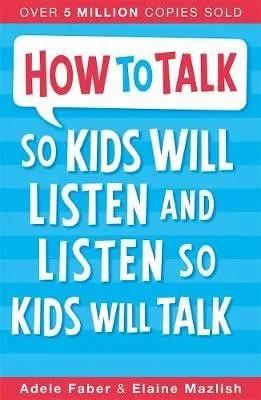
This is an absolutely classic child development parenting book. It's been around since the 1980s and has since sold millions of copies. It's a classic for a reason, but if you're sensitive to a more sentimental voice and structure, it may not be entirely for you. If you can bear the corniness, this really is one of the best books for new parents out there. Faber and Mazlish frame their book through the mechanism of a weekly support group, with each chapter covering a week of their 'real-life' parenting workshops, in which the participants consider parenting matters with which they're concerned, and for which the authors outline empathetic, practical, and keen advice on the best practices that they perceive for parenting. Basically, this is one of the parenting books that focusses on the importance of the language we use with and towards kids, and on the need for both parents and children to feel heard and respected.
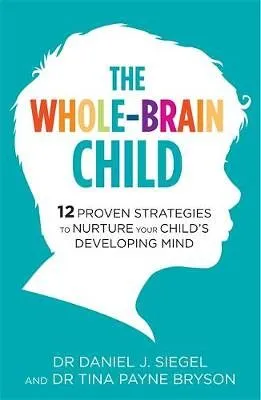
This is the child development book of child development books if you're looking for a guide to parenting that will take you through how to nurture your child from a psychological perspective. Siegel is a neuroscientist and Payne Bryson a parenting expert: they use their backgrounds to create their whole brain child theory. Zoning in on the brain development of your child by way of clear explanations, age-appropriate strategies and illustrations, their theory is if you know which parts of the brain are activated mid-tantrum, for example, it might change how you, as a parent, confront and engage with that tantrum and, in turn, raise calmer, happier children. Strategies to use with your child include 'Engage, Don't Enrage', whereby you keep your child thinking and listening, rather than solely reacting, or 'Connect Through Conflict', where you use moments of discord to encourage greater empathy between both you, the parent, and child. The Whole Brain Child is a book to really help parents get a more comprehensive grasp of child psychology and brain development.
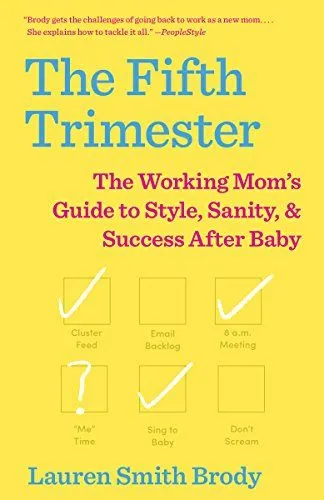
Anxious about returning to work after having a new child and how to integrate your working life with parenting? This book is great for parents of young children with exactly these anxieties. Smith Brody offers a heartfelt, humorous overview of return to work advice that should make the transition easier for parents, with honest, comforting advice from over 800 mums. Topics include how to pump breastmilk in less-than-ideal locales, how to ask for flexitime, and managing sleep deprivation.
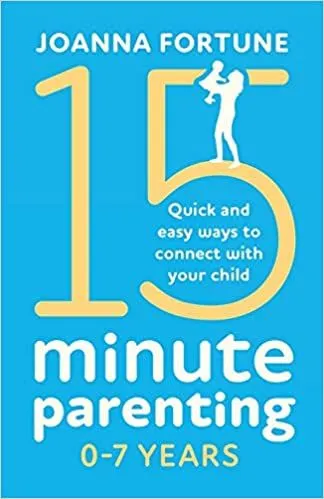
Look, we get it, all - or certainly most - parents are short on time, so this category for parenting books is an odd one, but we included it as psychotherapist and parenting expert Joanna Fortune has specifically designed a simple but effective method by which to incorporate 15 minutes of play into your existing daily parenting routine. Play is critical to Fortune's thesis, which focusses on the importance of mindful play both for children and parents. By rediscovering play as an adult and a parent, you access a whole new way of understanding and communicating with your child, and your child learns to navigate common behavioural issues in children, such as anxiety, boredom, and sibling rivalry. This is one of the best parenting books for toddlers and children up to the age of seven that works for you as a parent, in that the techniques are designed to fit around your schedule as well as working to help your child develop confidence and resilience.
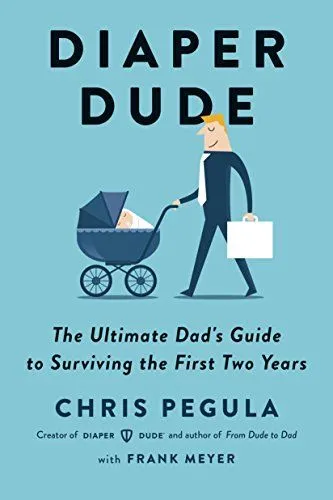
It's vital that dads understand their role in child development, and this will provide the 'need to know' information for all fathers on the frontline of parenting. Combining humour, psychology, and science alongside narrative non-fiction, this book comes from the author of From Dude to Dad pregnancy guide and pushes the message that dads don't have to lose themselves in the parenting process. It's also a book that's won several parenting awards, so you know it comes well recommended.
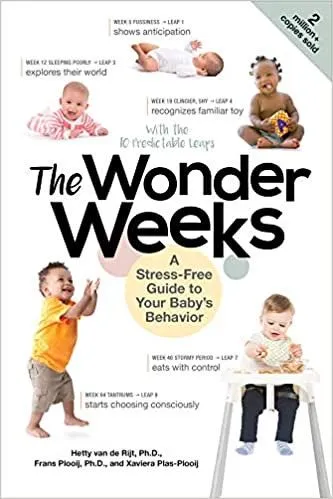
This is another of the most informed books for parents on brain development. The authors focus on ten developmental 'leaps' made by your baby as their brain evolves and learns new skills to master over the first 20 months of their life. Inevitably, these developmental leaps, and the behaviour your child will display around them, present new challenges for both parents and child to master. This child development book guides you through when and how to anticipate them, as well as reassuring you that the fussiness, regression, and sleepless nights of early childhood won't last forever, and are actually a vital time for child development.
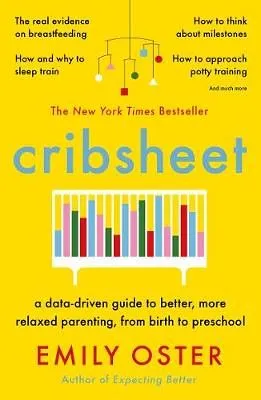
Oster arms herself with data. She's also an economist, which may seem curious, but in fact informs her quantitative research and consequent analysis, all of which she outlines in this accessible book. Parenting is full of conflicts, and in the face of so much advice from so many sources, it can be overwhelming knowing where to turn. Oster cuts through the noise to deliver guidance backed up by the science, debunking myths and providing non-judgemental ways for parents to make decisions over which they have full ownership, informed by Oster's number crunching and no-nonsense approach.
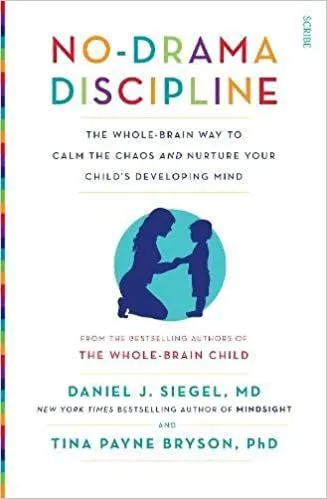
From the authors of the bestselling 'The Whole Brain Child' comes this book, a guide to the necessary evil of disciplining kids. Building on research that provides insight into children's brains, and how to discipline kids in a way that still ensures their optimal development, this is a compassionate theory that advocates a 'relational' approach - one that's keen on relationship building and respect, and less enthusiastic about drama or conflict. Siegel and Payne Bryson outline how these strategies, which are conveyed in clear, practical formats, help to create connections in your child's brain that build emotional and social skills whilst strengthening your relationship with them.
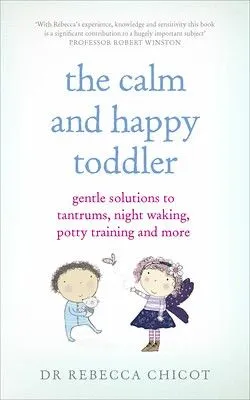
We think this ranks amongst the best parenting books about toddlers not because it has a magical cure for tantrums, potty training, or fussy eating, but because it is a staunch advocate of 'good enough' parenting. It answers the 'how tos' and 'whys' of toddler parenting, all the while providing a realistic approach to handling your tots - yes, they will throw tantrums, but that's not to say that you need to be scared of them as a parent. Dr Chicot is a child development expert and aims to get you and your toddler thriving together. Her approach works by way of encouraging you to learn how your toddler thinks and therefore understand what changes they're going through so that you can handle them with confidence and without worry. We're big fans of the toddler toolkit that addresses near every toddler scenario you can think of, and the toddler development map - a really visual guide to your child's growth and development.
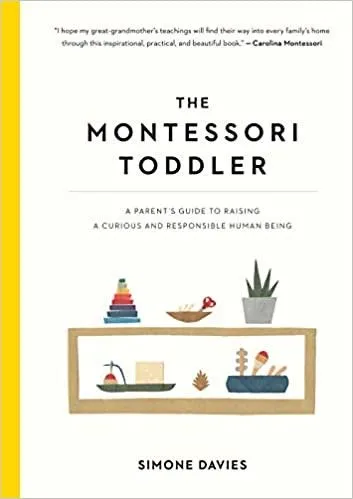
Sure, you want a parenting book bursting with compassion, practical advice, and hopefully a bit of humour, but doesn't it also help to have one that is also beautiful to look at? This is just that. Plus, it'll guide parents through the educational values of a Montessori classroom, advising you how to bring Montessori principles and practice into your home. Davies is a Montessori educator and guides you through processes that engage and ignite curiosity in both parents and children, as well as illuminating the importance of parents being present as a child's guide. Celebrating every stage of your toddler's development, this book is also absolutely beautiful to look at thanks to its clean design, and elegant illustrations complementing the photography.
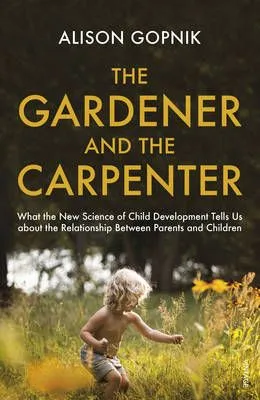
This is a fairly intense read, so it won't provide any speedy or quick-fix approaches or strategies. Gopnik is professor of both philosophy and psychology, and she brings this to her approach. Opening with a criticism of the way we raise children, Gopnik explores the science of child development and outlines her belief that we should discuss our kids in language that most resembles a gardener's - which is to say, language that expects and encourages surprise and challenges from those she tends. Gopnik wants parents to step away from trying to carve kids into the people we want them to be and instead advocates giving children space and encouragement to make their own mistakes, learn through play, and flourish in their own way - an approach that's backed up with evolutionary psychology and neuroscience.
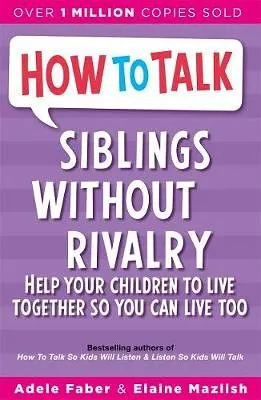
Another book from the powerhouse team of Faber and Mazlish, this outlines how clearly sibling dynamics play out in the 'real lives' of our kids - from the way we argue and what we value, through to our competitiveness and how much guilt we possess. The authors provide specific tactics for parents handling a variety of sibling scenarios, including handling violent physical fights to avoiding family comparison. Like How To Talk So Kids Will Listen, this book also has instructive cartoons, a group-therapy framework, and a practical but compassionate approach. All siblings fight. It's about how parents manage these challenges that matter.
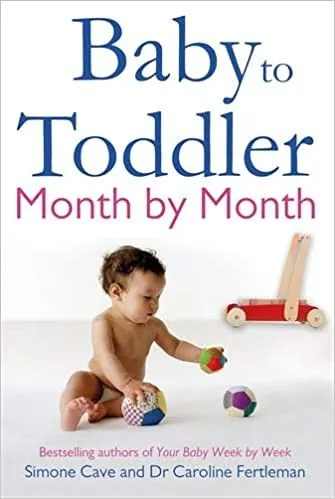
There really are plenty of books both about and for toddlers and their parents, but this is a good 'what to expect' guide, taking you through your little one's journey from six months old to 23 months - by which time your sweet baby will be a walking, talking, toddling tot full of character. This text outlines what to anticipate from your child's development over and during this time, covering sleeping problems, weaning, dealing with tantrums, encouraging your toddler to walk and talk, and more. It's a great way of ensuring that parents understand and pre-empt their toddler's behaviour, so that any surprises are minimised and can be strategised in advance.
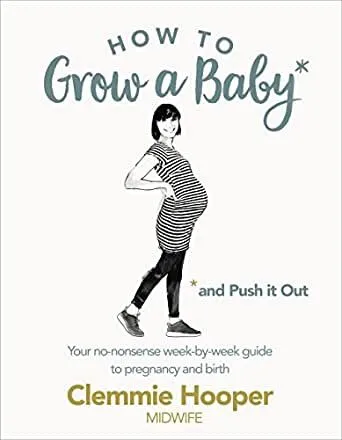
Okay, so this is a parenting book that could be positioned as a pregnancy book, but we've included it here as it provides detailed but accessible advice for mothers who are still carrying their baby as well as those who've given birth. Hooper combines humour and wit to detail the things mums really want to know, such as how to prevent tearing and what to include in your labour bag. Given that she's the mum of four girls and the midwife to many, Hooper's knowledge is well-founded.
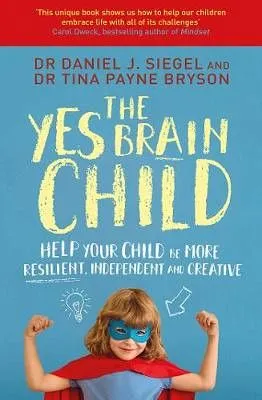
Another practical book full of 'need to know' information on how to encourage your child to become independent and resilient, from the writers of 'The Whole Brain Child'. Siegel and Payne Bryson provide advice, tools, and activities to help your child become a 'yes brain' kid - one who sees a challenge and rises up to meet it rather than shying away.
Kidadl Best Buys selects the top parent-recommended products across the web for families of all ages. If you liked our suggestions for the best books on parenting, be sure to check out our suggestions of the best pregnancy books specifically for dads. If you have slightly older kids, we've also put together the top ten best reward charts too - they're gold-star worthy.
Read The Disclaimer
At Kidadl we pride ourselves on offering families original ideas to make the most of time spent together at home or out and about, wherever you are in the world. We strive to recommend the very best things that are suggested by our community and are things we would do ourselves - our aim is to be the trusted friend to parents.
We try our very best, but cannot guarantee perfection. We will always aim to give you accurate information at the date of publication - however, information does change, so it’s important you do your own research, double-check and make the decision that is right for your family.
Kidadl provides inspiration to entertain and educate your children. We recognise that not all activities and ideas are appropriate and suitable for all children and families or in all circumstances. Our recommended activities are based on age but these are a guide. We recommend that these ideas are used as inspiration, that ideas are undertaken with appropriate adult supervision, and that each adult uses their own discretion and knowledge of their children to consider the safety and suitability.
Kidadl cannot accept liability for the execution of these ideas, and parental supervision is advised at all times, as safety is paramount. Anyone using the information provided by Kidadl does so at their own risk and we can not accept liability if things go wrong.
Kidadl is independent and to make our service free to you the reader we are supported by advertising.
We hope you love our recommendations for products and services! What we suggest is selected independently by the Kidadl team. If you purchase using the buy now button we may earn a small commission. This does not influence our choices. Please note: prices are correct and items are available at the time the article was published.
Kidadl has a number of affiliate partners that we work with including Amazon. Please note that Kidadl is a participant in the Amazon Services LLC Associates Program, an affiliate advertising program designed to provide a means for sites to earn advertising fees by advertising and linking to amazon.
We also link to other websites, but are not responsible for their content.
Was this article helpful?



We’ll send you tons of inspiration to help you find a hidden gem in your local area or plan a big day out.



Check your inbox for your latest news from us. You have subscribed to:
Remember that you can always manage your preferences or unsubscribe through the link at the foot of each newsletter.